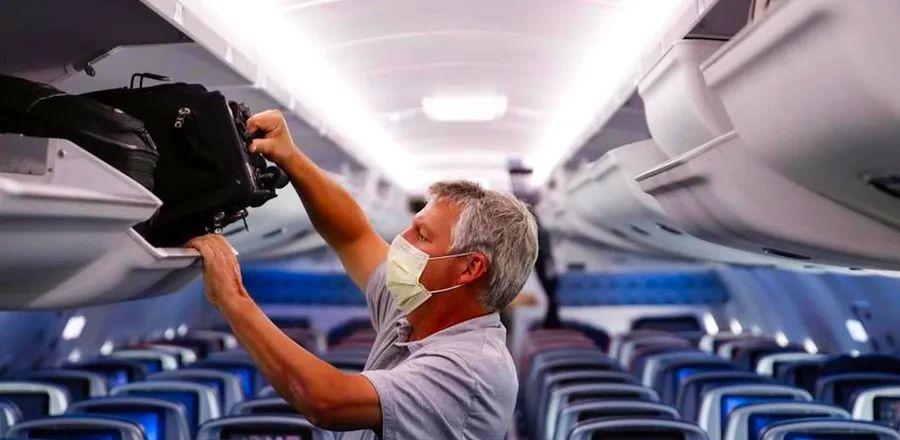TSA Extends Airplane Mask Requirement

On Thursday, the U.S. Transportation Security Administration (TSA) announced it has prolonged the federal mask requirement for public transport by one month, now set to end on April 18, instead of the previously planned March 18.
During this extension, the CDC will collaborate with governmental bodies to craft a new policy framework addressing when and under what conditions masks may be mandated in public transportation settings. TSA's statement suggests that the mask regulations could be relaxed or modified after April 18.
TSA indicated that the updated framework will consider COVID-19 community transmission levels, the emergence of new variants, national statistics, and the latest scientific insights.
This announcement follows the CDC's decision in February to ease indoor mask recommendations, which are now guided by the severity of illness, hospitalizations, and healthcare capacity rather than solely by COVID case numbers. These criteria classify counties as having low, medium, or high “COVID-19 community levels,” with the CDC advising universal indoor mask-wearing in high-level counties, irrespective of vaccination status. An interactive map has been made available by the agency to illustrate the current levels in each county.
Throughout the pandemic, the CDC has issued guidance on mask usage, but these are merely recommendations. Ultimately, the decision to enforce mask mandates has rested with individual states and jurisdictions. However, there is one domain where federal law mandates mask-wearing, specifically in travel and transportation.
The federal mask requirement for travel and transportation was established in January 2021, when the Biden administration and the CDC mandated that masks must be worn on airplanes, trains, and various forms of public transport, as well as in airports and bus and train stations. (As of February 25, school buses and vans are exempt from this rule.) U.S. airlines had already instituted mask mandates for passengers and crew since mid-2020.
The Association of Flight Attendants-CWA (AFA), representing flight attendants for airlines like United, Alaska, and Hawaiian, noted in a statement on February 25 that opinions among members regarding the continuation of the mask mandate vary, with some supporting it and others opposing it.
Their primary concern is that while the mask mandate remains in effect, flight attendants are responsible for enforcing it, and the AFA urges the traveling public to support flight attendants in their roles. This appeal comes amid rising incidents of air rage, often fueled by the federal mask policy, which poses risks to flight attendants and crew members.
In its most recent report dated March 7, 2022, the Federal Aviation Administration (FAA) indicated that airlines have documented 814 incidents of unruly behavior this year, with 535 of those—accounting for 65 percent—related to mask compliance issues.
To address this issue, the U.S. government increased the fines last fall for individuals who breach the mask mandate on airplanes, trains, and other public transport modes.
First-time violators now face fines ranging from $500 to $1,000, while repeat offenders could be fined between $1,000 and $3,000; previously, fines started at $250 and reached up to $1,500 for those with prior offenses.
When the new fines were announced, President Joe Biden condemned the hostility directed at flight crews due to the mask mandate. He stated, “And by the way, show some respect. The anger you see on television toward flight attendants and others doing their job is wrong. It’s ugly.”
The mask-related penalties are distinct from civil penalties the FAA can impose for unruly behavior; the FAA can now suggest fines of up to $37,000 per violation in cases involving disruptive passengers. (Previously, the maximum penalty per violation was $25,000, and a single incident may lead to multiple violations.)
Regarding international travel, President Biden has mandated that all international travelers, regardless of vaccination status, must undergo COVID testing no more than one calendar day before their flight to the United States. Additionally, all foreign nationals entering the U.S. must be vaccinated.
Last month, Airlines for America, the trade association representing major U.S. airlines, sent a letter to U.S. health officials urging them to eliminate the pre-departure testing requirement for vaccinated travelers entering the United States. This request arises as many countries, particularly in Europe, have started to lift their COVID testing mandates.

1

2

3

4

5
Evaluation :
5/5